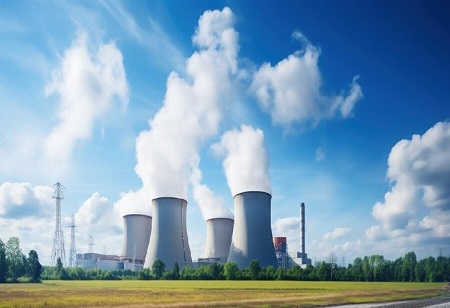
Japan, US to Assist Philippines' Nuclear Program


Japan, the United States, and the Philippines have solidified their collaboration to bolster the Philippines' civil nuclear program as part of an expanded trilateral cooperation effort. This commitment stems from the Philippines' request for additional training and capacity building for professionals involved in civil nuclear initiatives.
In a Joint Vision Statement released after their trilateral meeting at the White House, the three nations articulated their intention to enhance cooperation in deploying clean energy technologies, including renewables, to meet the Philippines' energy needs and facilitate a just transition. They also expressed plans to deepen collaboration on developing the civilian nuclear workforce through a trilateral dialogue, with a focus on advancing the Philippines' civil nuclear energy endeavours.
Additionally, Manila, Tokyo, and Washington are aligned in transitioning to clean energy and fostering high-standard, clean energy supply chain jobs while ensuring fair market competition and robust protections for labour rights and the environment. To further support the Philippines' nuclear aspirations, the US and Japan will jointly organize a nuclear energy study tour in Japan for Filipino nuclear experts and policymakers. This initiative underscores the significance of nuclear energy as a vital component of a multifaceted and inclusive clean energy transition.
President Ferdinand Marcos Jr. has shown enthusiasm for welcoming small modular nuclear power companies into the Philippines, citing their enhanced safety and cleanliness, which align with the country's geographic diversity. Last year, the Philippines and the United States established the "123 agreement," facilitating the peaceful export of US nuclear technology to the Philippines.
Moreover, the three nations acknowledged their joint support for the critical minerals industry to fortify global supply chains. This collaborative approach aims to promote resilience and reliability in critical minerals supply.

